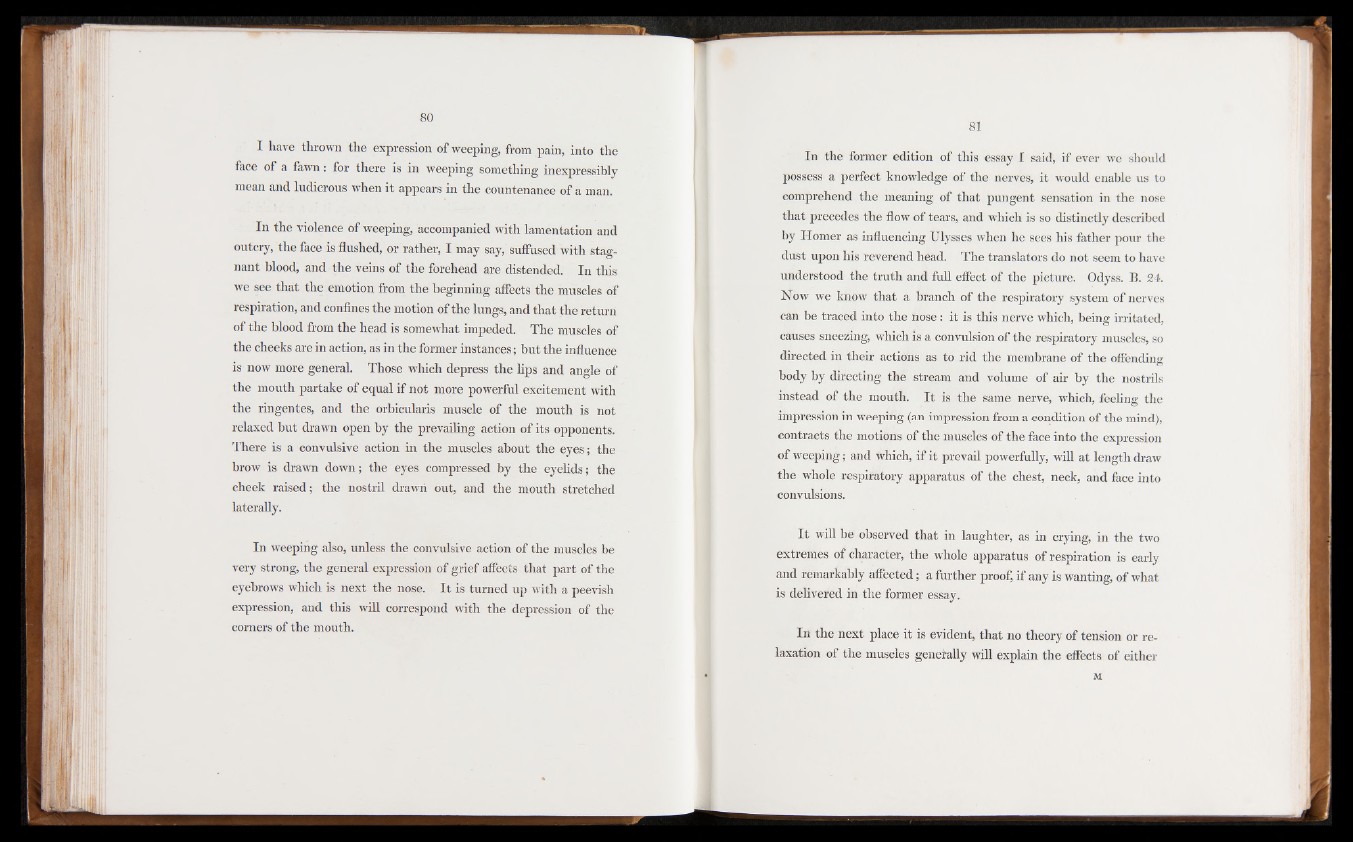
I have thrown the expression of weeping, from pain, into the
face of a fawn: for there is in weeping something inexpressibly
mean and ludicrous when it appears in the countenance of a man.
In the violence of weeping, accompanied with lamentation and
outcry, the face is flushed, or rather, I may say, suffused with stagnant
blood, and the veins of the forehead are distended. In this
we see that the emotion from the beginning affects the muscles of
respiration, and confines the motion of the lungs, and that the return
of the blood from the head is somewhat impeded. The muscles of
the cheeks are in action, as in the former instances; but the influence
is now more general. Those which depress the bps and angle of
the mouth partake of equal if not more powerful excitement with
the ringentes, and the orbicularis muscle of the mouth is not
relaxed but drawn open by the prevailing action of its opponents.
There is a convulsive action in the muscles about the eyes; the
brow is drawn down; the eyes compressed by the eyelids; the
cheek raised; the nostril drawn out, and the mouth stretched
laterally.
In weeping also, unless the convulsive action of the muscles be
very strong, the general expression of grief affects that part of the
eyebrows which is next the nose. It is turned up with a peevish
expression, and this will correspond with the depression of the
corners of the mouth.
In the former edition of this essay I said, if ever we should
possess a perfect knowledge of the nerves, it would enable us to
comprehend the meaning of that pungent sensation in the nose
that precedes the flow of tears, and which is so distinctly described
by Homer as influencing Ulysses when he sees his father pour the
dust upon his reverend head. The translators do not seem to have
understood the truth and full effect of the picture. Odyss. B. 24.
Now we know that a branch of the respiratory system of nerves
can be traced into the nose: it is this nerve which, being irritated,
causes sneezing, which is a convulsion of the respiratory muscles, so
directed in their actions as to rid the membrane of the offending
body by directing the stream and volume of air by the nostrils
instead of the mouth. It is the same nerve, which, feeling the
impression in weeping (an impression from a condition of the mind),
contracts the motions of the muscles of the face into the expression
of weeping; and which, if it prevail powerfully, will at length draw
the whole respiratory apparatus of the chest, neck, and face into
convulsions.
It will be observed that in laughter, as in crying, in the two
extremes of character, the whole apparatus of respiration is early
and remarkably affected; a further proof, if any is wanting, of what
is delivered in the former essay.
In the next place it is evident, that no theory of tension or relaxation
of the muscles generally will explain the effects of either
M